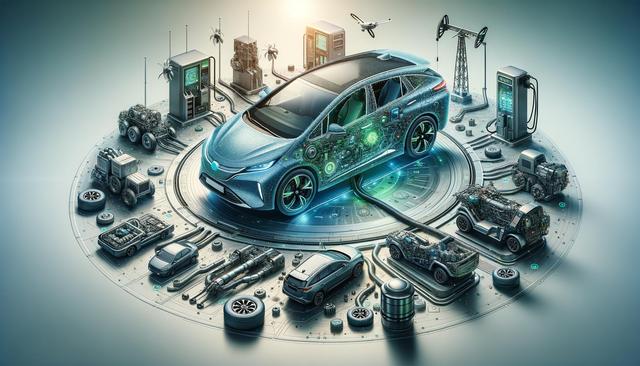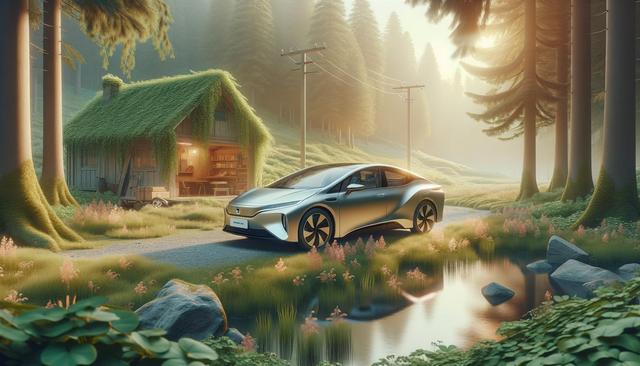Understanding What Makes a Car a Hybrid
Hybrid cars combine a traditional internal combustion engine with an electric motor and battery system. This dual setup allows the vehicle to switch between or simultaneously use both power sources, depending on driving conditions. The result is improved fuel economy, reduced emissions, and often a quieter driving experience. There are several types of hybrids including full hybrids, mild hybrids, and plug-in hybrids, each offering different levels of electric power integration.
Full hybrids can run on just electricity, just gasoline, or a combination of both. Mild hybrids, on the other hand, use electric support for the gasoline engine but cannot run on electricity alone. Plug-in hybrids come with larger batteries that can be charged externally, offering a more extended electric-only range. These technologies work together to minimize fuel consumption and optimize engine performance. For those exploring eco-conscious transport options, hybrid vehicles are a practical step forward. Explore more at https://go.jexli.com/postback?clickId={click_id}&payout={epayout}&p2={campaign}.
Environmental Benefits of Hybrid Vehicles
One of the primary reasons many consumers consider hybrid cars is their environmental impact. By relying partially on electric power, hybrids reduce the amount of gasoline burned and consequently lower carbon dioxide emissions. This helps decrease air pollution and contributes to a cleaner atmosphere, especially in urban areas where vehicle emissions are a major concern.
Key environmental advantages of hybrid vehicles include:
- Lower greenhouse gas emissions compared to conventional cars
- Reduced fuel consumption, leading to less dependence on fossil fuels
- Quieter operation, contributing to less noise pollution
In addition to these benefits, many hybrid models use regenerative braking, a process that converts kinetic energy into electricity to recharge the battery. This not only improves efficiency but also reduces wear on the brake system. To learn more about eco-friendly driving choices, visit https://go.jexli.com/postback?clickId={click_id}&payout={epayout}&p2={campaign}.
Financial Considerations and Fuel Savings
Although hybrid cars often come with a higher upfront cost than their gasoline-only counterparts, they can lead to significant savings over time. The improved fuel efficiency means fewer trips to the gas station, and many countries offer tax incentives or rebates for hybrid vehicle purchases. Insurance companies may also offer discounts due to the generally safe and efficient nature of these vehicles.
Common financial benefits include:
- Lower fuel expenses over the lifespan of the vehicle
- Government incentives and rebates
- Reduced maintenance costs for components like brakes
Hybrid cars are also known for their strong resale value, as demand for fuel-efficient vehicles continues to grow. For those looking to align their financial goals with environmental consciousness, hybrid cars are a compelling option. For detailed comparisons and offers, check out https://go.jexli.com/postback?clickId={click_id}&payout={epayout}&p2={campaign}.
Technology and Performance in Hybrid Cars
Hybrid technology has advanced significantly in recent years, offering drivers a seamless and responsive experience. Many modern hybrids come equipped with advanced driver assistance systems, touch-screen infotainment, and real-time energy flow displays. These features not only enhance the driving experience but also help drivers understand how their vehicle is utilizing energy.
Performance-wise, today’s hybrid cars are more than capable of handling everyday driving needs, with some models offering sporty acceleration and smooth handling. Key features often include:
- Seamless transition between electric and gasoline power
- Real-time fuel efficiency tracking
- Eco-driving modes that adjust throttle response and air conditioning to save energy
These innovations make hybrids a practical and enjoyable choice for a wide range of drivers. For more information on the latest developments, visit https://go.jexli.com/postback?clickId={click_id}&payout={epayout}&p2={campaign}.
Is a Hybrid Car Right for You?
Choosing a hybrid car depends on your driving habits, budget, and environmental priorities. If you mostly drive in the city, a hybrid can be particularly beneficial due to its ability to operate in electric mode at low speeds. For those with longer commutes, plug-in hybrids offer the flexibility of electric driving with the range assurance of a gasoline engine.
Consider the following when deciding:
- Your average daily mileage
- Availability of charging stations (for plug-in hybrids)
- Local government incentives and fuel costs
Hybrid cars are increasingly accessible and come in a variety of styles from compact sedans to SUVs. Whether you’re seeking to reduce your carbon footprint or simply save on fuel, hybrids offer a well-rounded solution. Ready to explore your options? Start here: https://go.jexli.com/postback?clickId={click_id}&payout={epayout}&p2={campaign}.
Conclusion: Embracing a More Efficient Future
Hybrid vehicles represent a meaningful step toward more sustainable transportation. They offer a balanced blend of traditional and electric power, making them a smart choice for environmentally conscious drivers who don’t want to compromise on performance or convenience. While they may not be the only solution to reducing emissions, they are an effective and accessible option for many people today. By understanding how hybrid cars work and the benefits they offer, you can make an informed decision that aligns with both your values and lifestyle. For more insights and offers, visit https://go.jexli.com/postback?clickId={click_id}&payout={epayout}&p2={campaign}.



Leave a Reply